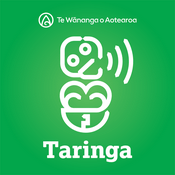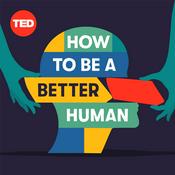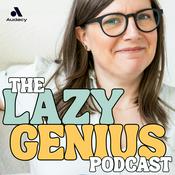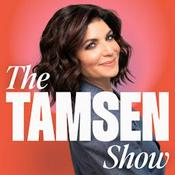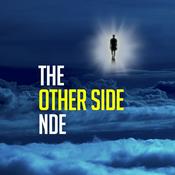343 episodes
Inside Zoo School: Learning, Leadership, and Care with Dr. Susan Friedman & Rick Hester [Episode 273]
09/2/2026 | 1h 14 mins.In this insightful and future-focused episode of the Animal Training Academy Podcast, Ryan Cartlidge is joined by two pioneers in applied behavior analysis and professional animal education: Dr. Susan Friedman and Rick Hester, as they introduce and explore their newest collaborative project, Zoo School.
Dr. Susan Friedman brings decades of experience as a psychology professor, behavior analyst, and internationally respected educator whose work has profoundly shaped humane, evidence-based animal training across species. Rick Hester joins the conversation as a seasoned zoo professional, educator, and mentor whose career spans animal care, staff development, and leadership within zoological institutions. Together, Susan and Rick share how their complementary backgrounds converged to create Zoo School - a learning platform designed to elevate animal care through science, ethics, and effective teaching.
Throughout the conversation, Susan and Rick reflect on the gaps they've observed in traditional animal-care education, particularly the need for deeper fluency in learning theory, behavior analysis, and instructional design. They discuss how Zoo School was built to support zoo and aquarium professionals not just in what to do, but in how to think - developing critical skills in observation, decision-making, and compassionate problem solving.
Ryan, Susan, and Rick dive into the philosophy underpinning Zoo School, including the importance of clarity, kindness, and accountability in professional practice. They explore how well-designed education can improve animal welfare, empower caregivers, and foster healthier organizational cultures. Central to the discussion is the idea that behavior doesn't exist in isolation - it is shaped by environments, systems, and the contingencies we design for both animals and humans.
Listeners will also hear candid reflections on mentorship, lifelong learning, and the responsibility educators carry when shaping the next generation of professionals. Susan and Rick share what excites them most about Zoo School's future, how it differs from conventional training programs, and why now is the right time for this kind of learning space to exist.
This episode is a thoughtful invitation to rethink professional development in animal care - and a compelling reminder that when education is grounded in science, empathy, and intentional design, it has the power to create meaningful, lasting change for animals and the people who care for them.
Links
https://bwzs.org/Practicing Gratitude Inside and Outside ATA with Ryan Cartlidge, Shelly Wood & Belinda Young [Episode 272]
26/1/2026 | 58 mins.In this reflective and values-driven episode of the Animal Training Academy Podcast, ATA team members Ryan Cartlidge, Shelly Wood, and Belinda Young come together for a thoughtful discussion on gratitude - one of Animal Training Academy's core values - and the meaningful role it plays in learning, community, and wellbeing.
Drawing from personal experience and professional practice, Ryan, Shelly, and Belinda explore how intentional gratitude shapes ATA's culture and supports safer, more compassionate spaces for human learners. From early-morning thought loops and professional challenges to gratitude journals, team rituals, and community moderation, the conversation reframes gratitude not as "toxic positivity," but as a genuine, practiced skill that can be learned, strengthened, and modeled.
Throughout the episode, the discussion explores:
Why gratitude was intentionally chosen as a core value of Animal Training Academy
Gratitude as a learnable skill that builds resilience, self-compassion, and emotional flexibility
Parallels between effective animal training and supporting human learners
How gratitude supports bravery, vulnerability, and risk-taking in learning environments
The ripple effects of modeling gratitude within ATA and beyond
Why psychologically safe communities are essential for growth, feedback, and lifelong learning
This episode is a heartfelt exploration of what it means to practice gratitude with authenticity. It highlights how values-led reinforcement can transform not only how we train animals, but how we support people, nurture community, and show up for one another - reminding us that when courage, curiosity, and kindness are intentionally reinforced, the ripples travel far beyond the moment.- In the second part of our conversation with Ryan Talbot, Behavioral Enrichment and Training Manager at Wolf Park, we continue exploring how behavior science, engineering, and thoughtful creativity come together in Ryan's work with wolves and wolf dogs. Ryan shares how small, systematic changes can create meaningful shifts in cooperative care, and how approaching husbandry through a constructional, stepwise lens helps both animals and humans experience more clarity and choice.
Ryan and host Ryan Cartlidge dig into the practical realities of teaching complex behaviors to apex species. They discuss shaping, splitting, and transferring control, as well as how long-term plans can be built from simple, repeatable loops. Ryan also reflects on what he has learned from working with individual animals over many years, including how emotional safety guides the pace of training and how social dynamics influence husbandry outcomes.
Throughout the episode, Ryan highlights the importance of curiosity, experimentation, and community. From building prototype tools to inviting colleagues into problem-solving conversations, he shares how collaborative thinking makes training more effective and more humane. His insights offer a thoughtful reminder that progress is not about perfection, but about paying attention to what an animal communicates and adjusting with care.
Throughout this episode, we explore:
✅ How a constructional approach supports clarity and confidence in cooperative care ✅ The role of shaping and splitting in teaching complex husbandry behaviors ✅ How wolf and wolf dog social dynamics influence training plans and outcomes ✅ Why emotional safety determines the appropriate pace of progression ✅ The value of experimentation, prototyping, and creative problem solving ✅ Long-term behavior planning and building repeatable learning loops ✅ How collaboration within a training team leads to better welfare and better results
This concluding conversation with Ryan offers practical insights, reflective moments, and a look into how science, creativity, and compassion shape meaningful work with apex species.
Links
https://wolfpark.org/
https://www.facebook.com/wolfparkindiana
https://www.instagram.com/wolfparkindiana/
Links to papers referred to during conversation:
https://link.springer.com/article/10.1007/s40617-023-00890-1
https://link.springer.com/article/10.1007/s40617-023-00850-9 - In this first part of our conversation with Ryan Talbot, Behavioral Enrichment and Training Manager at Wolf Park, we dive into the winding and thoughtful path that brought him from computer engineering into the world of applied behavior analysis and cooperative care. Ryan shares how a formative visit to Wolf Park opened his eyes to the power of relationships built through understanding another being's umwelt, setting him on a path of lifelong learning in behavior science.
Across the episode, Ryan reflects on how engineering thinking and behavior analysis intersect in his work. He discusses debugging software versus analyzing behavior, the parallels between instrumentation and communication, and how these concepts helped shape his approach to training wolves with clarity and compassion. Ryan also describes the early cooperative care efforts at Wolf Park, from reducing reliance on human wolf bonds to developing voluntary, transferable husbandry behaviors with the help of colleagues and mentors.
Together, Ryan and host Ryan Cartlidge explore themes of motivation, imposter syndrome, community, and what it means to contribute to a field from an unconventional starting point. From building wooden target blocks to prototyping touchscreen devices for wolves, Ryan shares how creativity, curiosity, and open source values influence both his training and his desire to help others learn and grow alongside their animals.
Throughout this episode, we explore:
✅ The moment at Wolf Park that sparked Ryan's interest in behavior and umwelt ✅ How engineering concepts like debugging and instrumentation map onto behavior analysis ✅ The evolution of cooperative care training with wolves and wolf dogs at Wolf Park ✅ Why Ryan sees behavior as a physical science governed by predictable laws ✅ The influence of mentors and colleagues throughout his learning journey ✅ Thoughts on imposter syndrome, industry identity, and finding one's place in the training community ✅ Open source values, tinkering, and creative tools that support clearer communication with learners
This conversation offers a fascinating look at how diverse backgrounds enrich our field, and how curiosity and compassion can shape meaningful work with animals.
Links
https://wolfpark.org/
https://www.facebook.com/wolfparkindiana
https://www.instagram.com/wolfparkindiana/
Links papers referred to during conversation:
https://link.springer.com/article/10.1007/s40617-023-00890-1
https://link.springer.com/article/10.1007/s40617-023-00850-9 - In this candid and practical conclusion to their two-part conversation, Ryan Cartlidge and Sara Brueske shift from the training field to the front office to discuss the business of animal training. Sara shares an "in the trenches" look at her journey into facility ownership and the evolution of her business, Happy Dog Lodge.
The conversation centers on a service model often debated within the positive reinforcement community: Board and Train. Sara offers a transparent look at the ethics, logistics, and communication strategies required to offer this service in a way that prioritises client education, successful skill transfer, and the wellbeing of the dog.
Beyond the specific service, Ryan and Sara discuss the broader challenges of entrepreneurship, from the weight of managing a team to the art of marketing to both clients and professional peers. Sara's insights provide a valuable roadmap for any trainer navigating the complexities of making their passion a sustainable profession.
Throughout this episode, we explore:
✅ The shift from solo sport trainer to facility owner and team leader ✅ A deep dive into the Board and Train model from a positive reinforcement perspective ✅ Strategies for ensuring successful training transfer from trainer to client ✅ The vital difference between marketing to your clients and marketing to your peers ✅ The real-world challenges and ethical considerations of running a training business ✅ How to build a service that meets market demand while upholding your training philosophy
Part two is a must-listen for any training professional, offering an honest look at the sometimes uncomfortable but crucial business side of what we do and how to do it with integrity and foresight.
Links
Happy Dog Lodge - Boarding, Training, Grooming in Cambridge, MN
www.happydoglodge.com
Fenzi Dog Sports Academy
www.fenzidogsportsacademy.com
Facebook page:
www.facebook.com/brueskesara
More Education podcasts
Trending Education podcasts
About Animal Training Academy
High Quality Animal Training Content. Information on techniques that apply to all animals in all situations. Positive un-intrusive training techniques only.
Podcast websiteListen to Animal Training Academy, anything goes with emma chamberlain and many other podcasts from around the world with the radio.net app
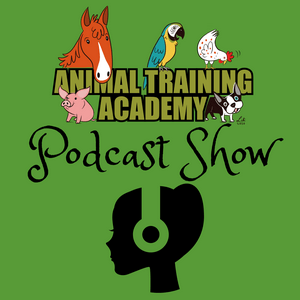
Get the free radio.net app
- Stations and podcasts to bookmark
- Stream via Wi-Fi or Bluetooth
- Supports Carplay & Android Auto
- Many other app features
Get the free radio.net app
- Stations and podcasts to bookmark
- Stream via Wi-Fi or Bluetooth
- Supports Carplay & Android Auto
- Many other app features


Animal Training Academy
Scan code,
download the app,
start listening.
download the app,
start listening.






